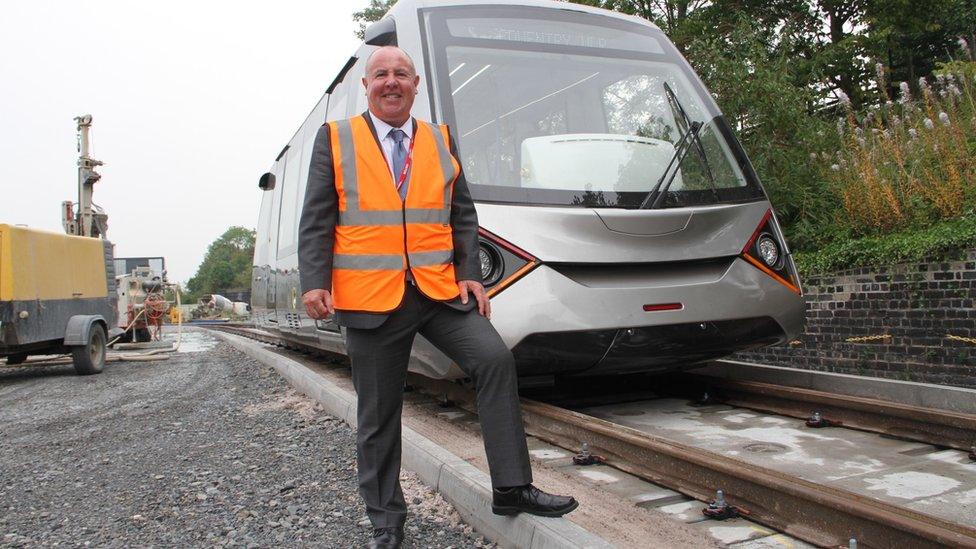West Midlands mayoral rivals pledge to fund Very Light Rail plans
- Published
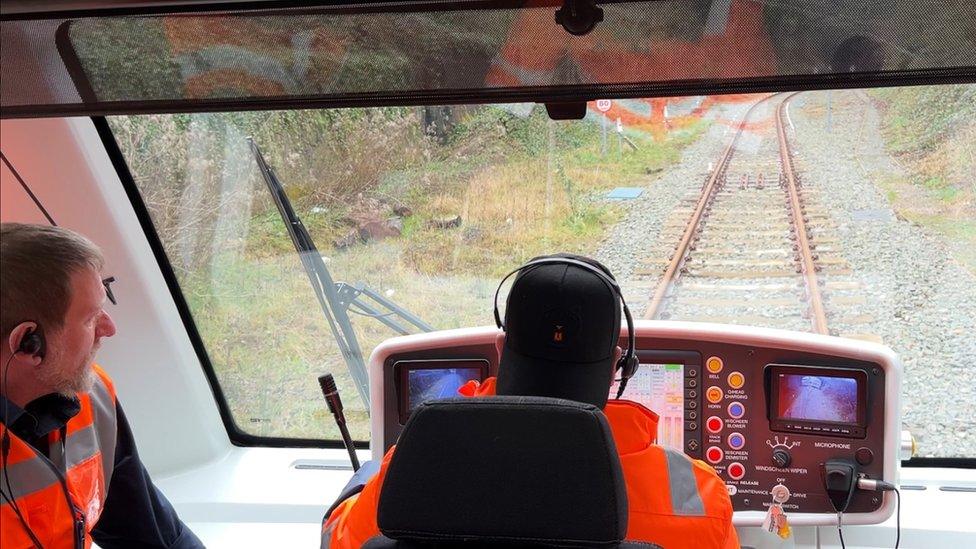
The Very Light Rail project has been described as a battery-powered, zero-emission tram system
West Midlands Mayor Andy Street and his election rival Richard Parker have both committed to funding the light rail system in Coventry.
The mayoral candidates faced questions about Very Light Rail (VLR) after the BBC learned the project's bid for government cash last year was rejected.
Mr Street said he had "ring-fenced" £72m in government money for VLR.
But Mr Parker said if elected he would revisit the scheme to make sure money was available more quickly.
Coventry's VLR has been billed as a cheaper and faster-to-build alternative to traditional trams.
The programme to build it is being led by the Labour-run Coventry City Council, which hoped the first passenger route would be ready by 2025.
The VLR team asked the government for £36.8m in February 2023 and estimated the project would cost £189m overall.
'Reliable and cheap'
But senior civil servants threw out the council's bid for cash, meaning access to funding was restricted forcing delays in the work.
In a meeting about the project, civil servants questioned whether Coventry was the right place for a VLR system.
The government said it had approved £15m so far to support testing of VLR.
Mr Street said all cities needed "public transport that's reliable and cheap", adding he had been "right behind" VLR from the start.
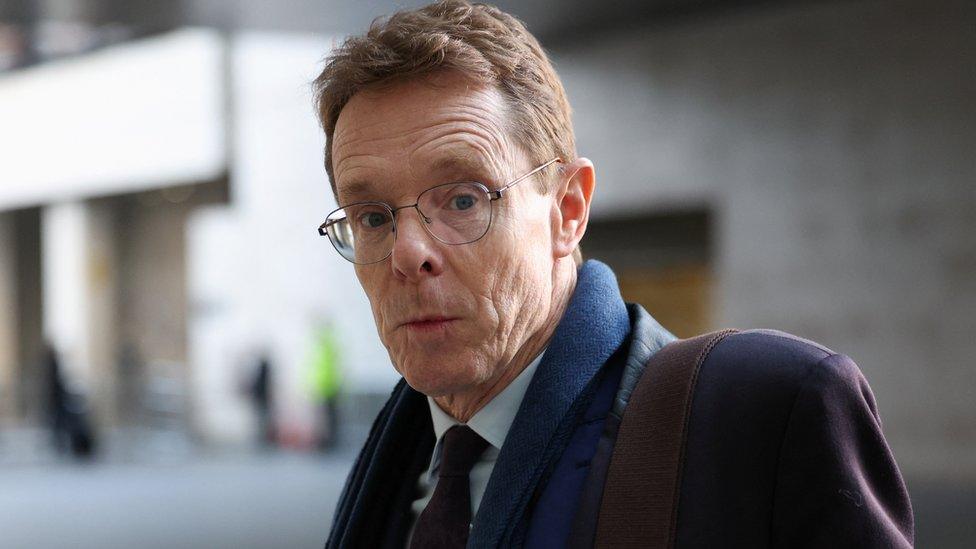
Andy Street said he had backed VLR from the start
When asked if he could guarantee Coventry would get a VLR passenger service, Mr Street said he was confident that "subject to the test, we expect to build the first track".
"At the moment, it's planned solely for Coventry," the Conservative mayor added.
'When is money available?'
Responding to questions about the funding bid being rejected, a Department for Transport (DfT) spokesman said: "It's essential that we consider and scrutinise business cases to ensure value for money for the taxpayer."
Mr Parker said he was "committed to driving forward" VLR and set out his ambition to promote the technology "across the West Midlands, the UK and overseas".
Labour's mayoral candidate said he hoped to develop VLR "far quicker than the government and the DfT is permitting".
He said there had been lots of "announcements but very little application to date", suggesting the big questioned was "when is that money going to be available?"
"I will be revisiting what the current mayor is doing and making sure that money is available asap," Mr Parker said.
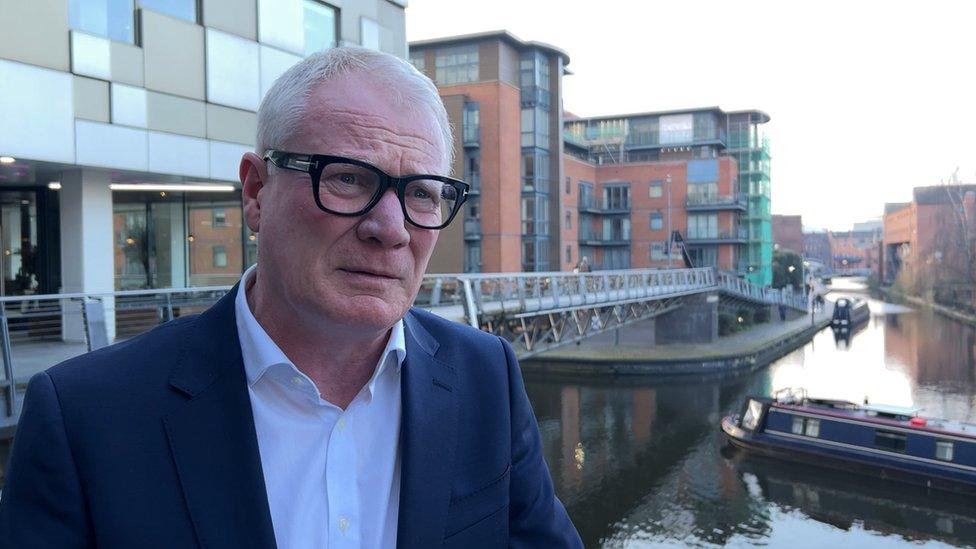
Richard Parker said he would revisit the funding model for VLR
Sunny Virk, the Liberal Democrat candidate, said VLR was a "speedy way" to provide public transport, but said the relationship between the council and the government appeared "to be where the problem lies".
"A strong mayor will be able to work through those problems and get this project moving again," Mr Virk said.
The VRL system was branded a "vanity project" by Reform UK's candidate Elaine Williams.
She said rather than "blow" £189m of taxpayers' cash on the scheme, "Coventry could and should spend a fraction of this amount on increasing the number of buses, security on its buses, remove restrictions and welcome cars back into its city centre".
The Green Party's candidate Siobhan Harper-Nunes said it was "disappointing" the government was refusing to fund VLR in full.
She said the West Midlands "gets completely short-changed" compared with London, adding: "We need a mayor who will stand up for our fair share of transport funding."
Under a new funding process, the VLR project has to prove the system works in practice to access more government money from a pot worth £40m.
The next step is to test the vehicle on a demonstrator track, which the council plans to build in the city centre later this year.
Coventry city councillor Jim O'Boyle has said he now does not expect VLR to be in public use until at least 2026.

Follow BBC West Midlands on Facebook, external, X, external and Instagram, external. Send your story ideas to: newsonline.westmidlands@bbc.co.uk, external
Related topics
- Published22 March 2024
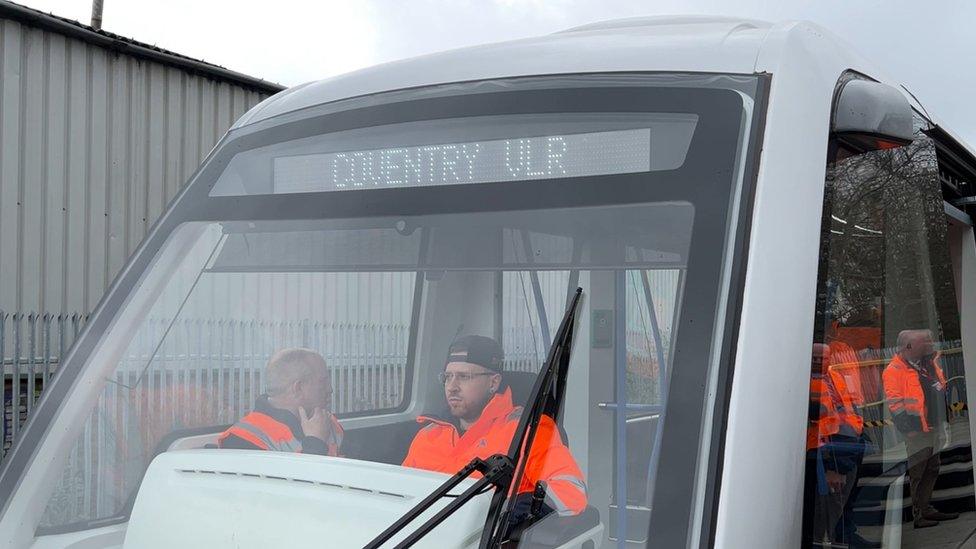
- Published12 March 2024
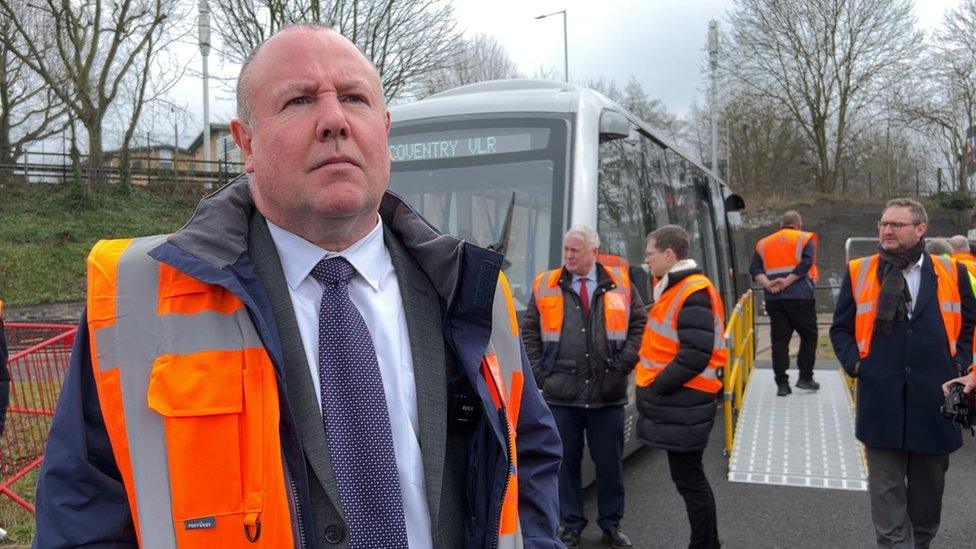
- Published2 November 2023
